Table of Contents
While one can debate the virtues of the free market, there are some things about it that are clear: First, it has raised more people out of poverty than any utopian economic system proffered as an alternative. Second, it does an excellent job at distributing resources — far better than the heavy hand of centralized government planning.
Indeed, “freedom” was largely understood throughout the history of modern political philosophy to mean free markets as well as freedom of conscience and movement and the other essential freedoms. It is no mistake that the most brutal regimes in human history have treated the notion of property rights as little more than an obstacle on the road to human equality.
The competition of a free and open market leads to greater goods to meet the greater needs of greater numbers of people. Closing down free and open markets delegates the task of deciding what and how much of something people need to a centralized and often unaccountable bureaucrat.
None of this is to say that free market capitalism is without its problems. But it has nothing in the way of meaningful alternatives. The men who speak below understood this. See what they have to say about the benefits — and the comparative pitfalls — of the free market.
Love it or hate it, the free market has lifted millions from poverty and fueled innovation. But what makes it so indispensable? These voices weigh in.
How the Free Market Fuels Success and Sparks Innovation
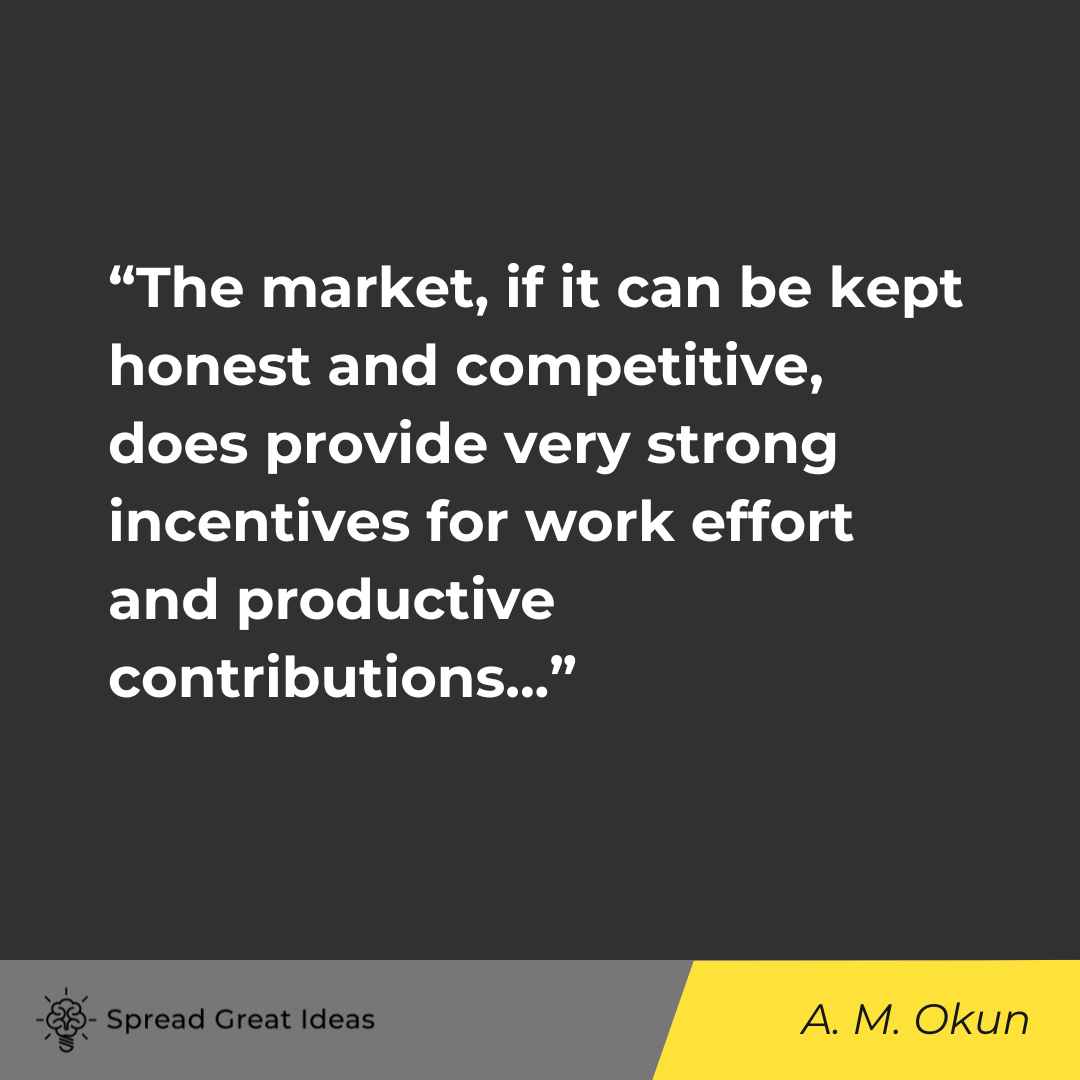
“The market, if it can be kept honest and competitive, does provide very strong incentives for work effort and productive contributions. In their absence, society would thrash about for alternative incentives-some unreliable, like altruism; some perilous like collective loyalty; some intolerable, like coercion or oppression.”
– Arthur Melvin Okun on how an honest and competitive market is a true meritocracy.
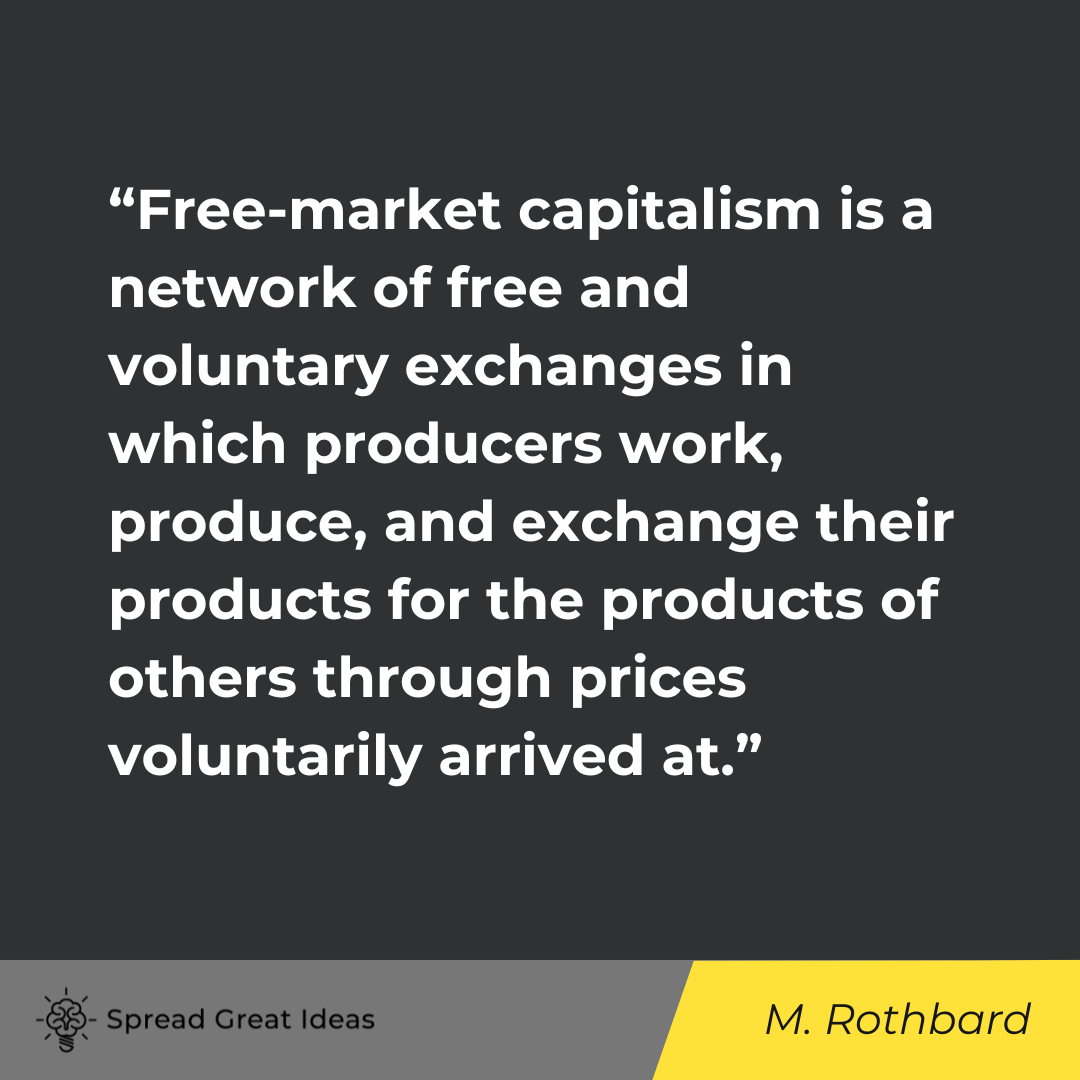
“Free-market capitalism is a network of free and voluntary exchanges in which producers work, produce, and exchange their products for the products of others through prices voluntarily arrived at.”
– Murray Rothbard on what free-market capitalism is.
“The process of exchange enables man to ascend from primitive isolation to civilization: it enormously widens his opportunities and the market for his wares; it enables him to invest in machines and other ‘high-order capital goods’; … it forms a pattern of exchanges — the free market — which enables him to calculate economically the benefits and the costs of highly complex methods and aggregates of production.”
– Murray Rothbard, The Ethics of Liberty on how the exchange of goods and trade has allowed us to evolve into complex civilizations.
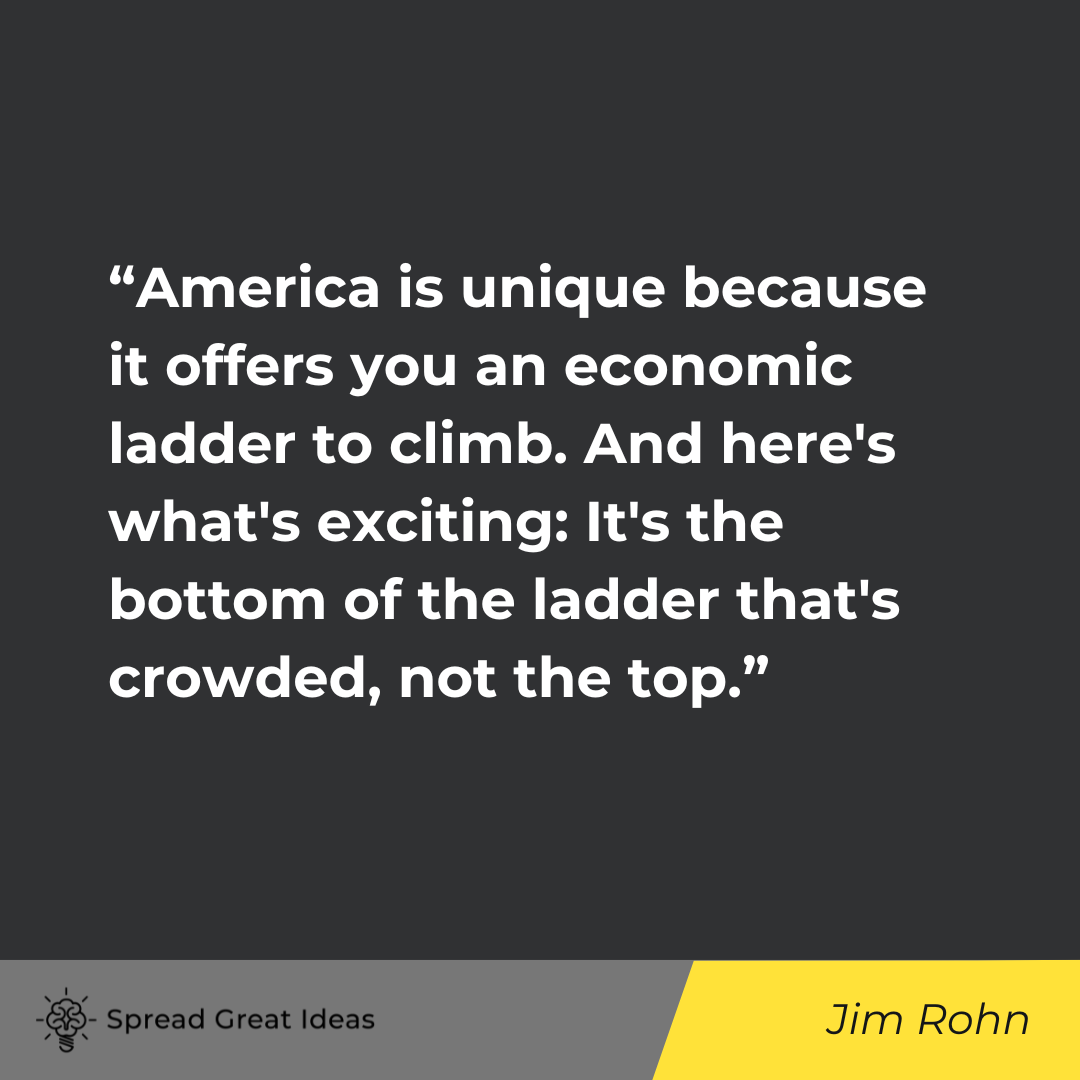
“America is unique because it offers you an economic ladder to climb. And here’s what’s exciting: It’s the bottom of the ladder that’s crowded, not the top.”
– Jim Rohn, The Treasury of Quotes on how the US economy provides a way for anyone to get to the top of the ladder.
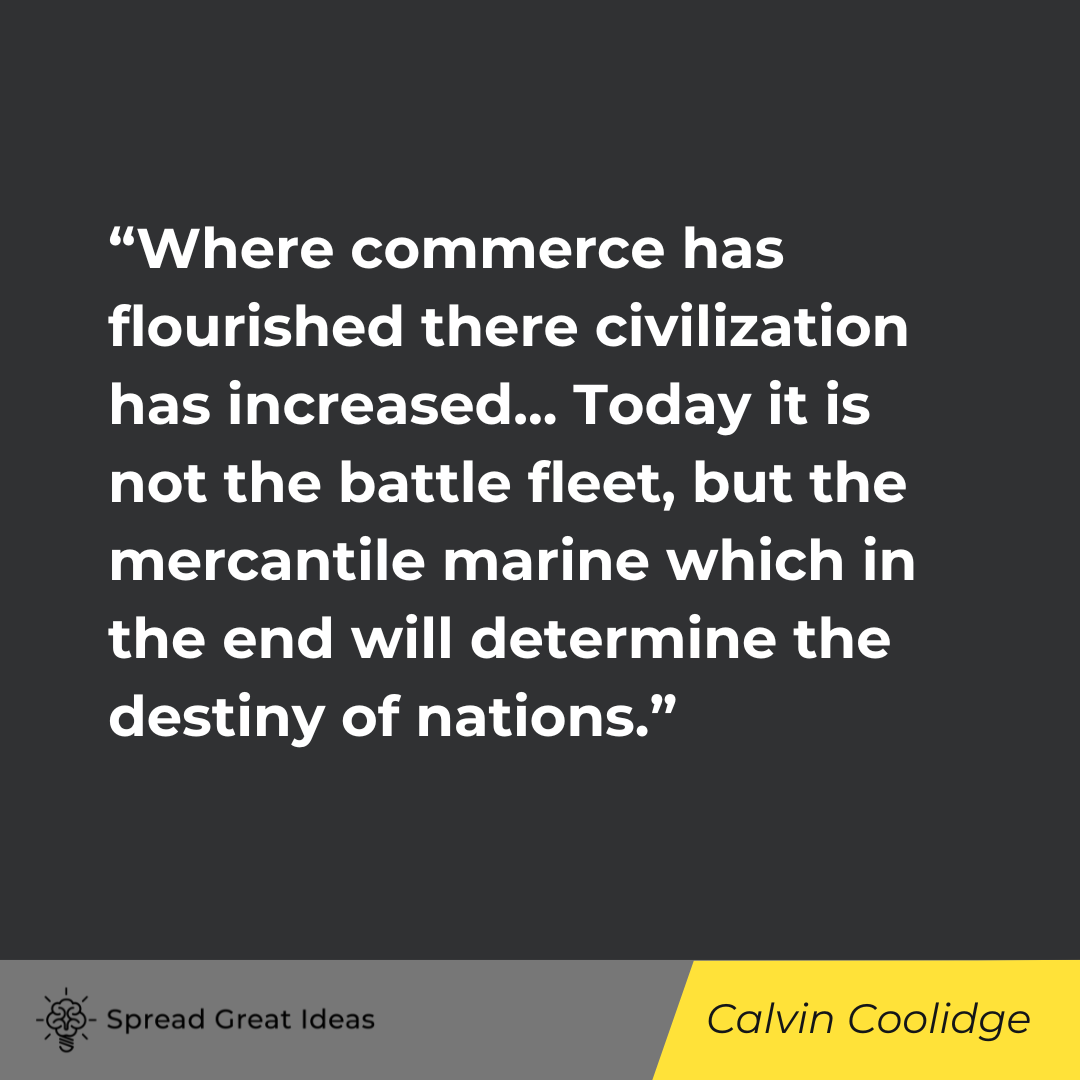
“Where commerce has flourished there civilization has increased… Today it is not the battle fleet, but the mercantile marine which in the end will determine the destiny of nations.”
– Calvin Coolidge, Brockton Chamber of Commerce, Brockton, MA, April, 11, 1916, on how trade and commerce would predict the future of nations more than war.
Economic Freedom Rewards Hustlers and Game-Changers
“When once the right of the individual to liberty and equality is admitted, there is no escape from the conclusion that he alone is entitled to the rewards of his own industry. Any other conclusion would necessarily imply either privilege or servitude.”
– Calvin Coolidge, Address to the Holy Name Society, Washington, D.C., September 21, 1924, on how liberty means you should keep the rewards of your own effort.
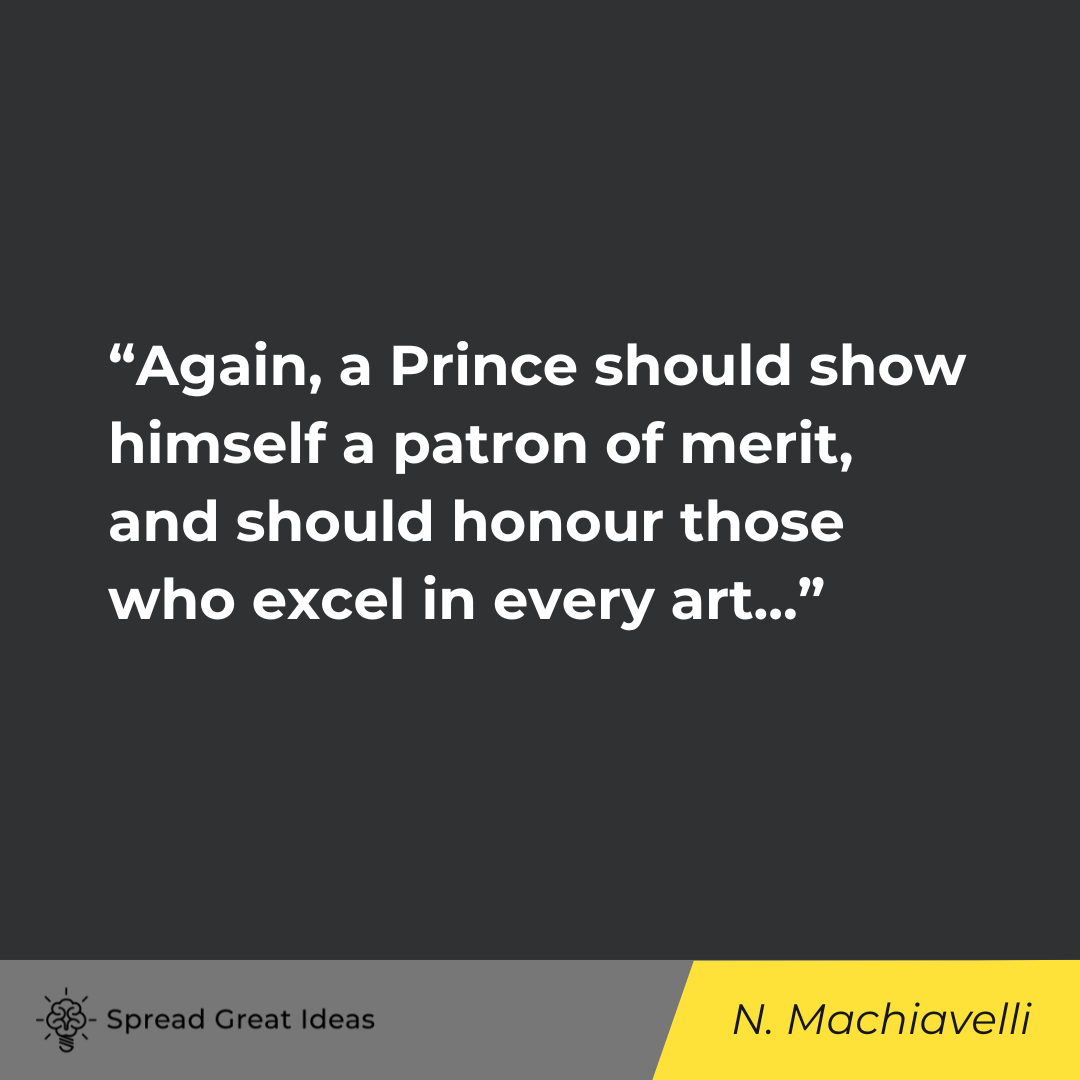
“Again, a Prince should show himself a patron of merit, and should honour those who excel in every art. He ought accordingly to encourage his subjects by enabling them to pursue their callings, whether mercantile, agricultural, or any other, in security, so that this man shall not be deterred from beautifying his possessions from the apprehension that they may be taken from him, or that other refrain from opening a trade through fear of taxes; and he should provide rewards for those who desire so to employ themselves, and for all who are disposed in any way to add to the greatness of his City or State.”
– Niccolò Machiavelli on why leaders should support talent and hard work.
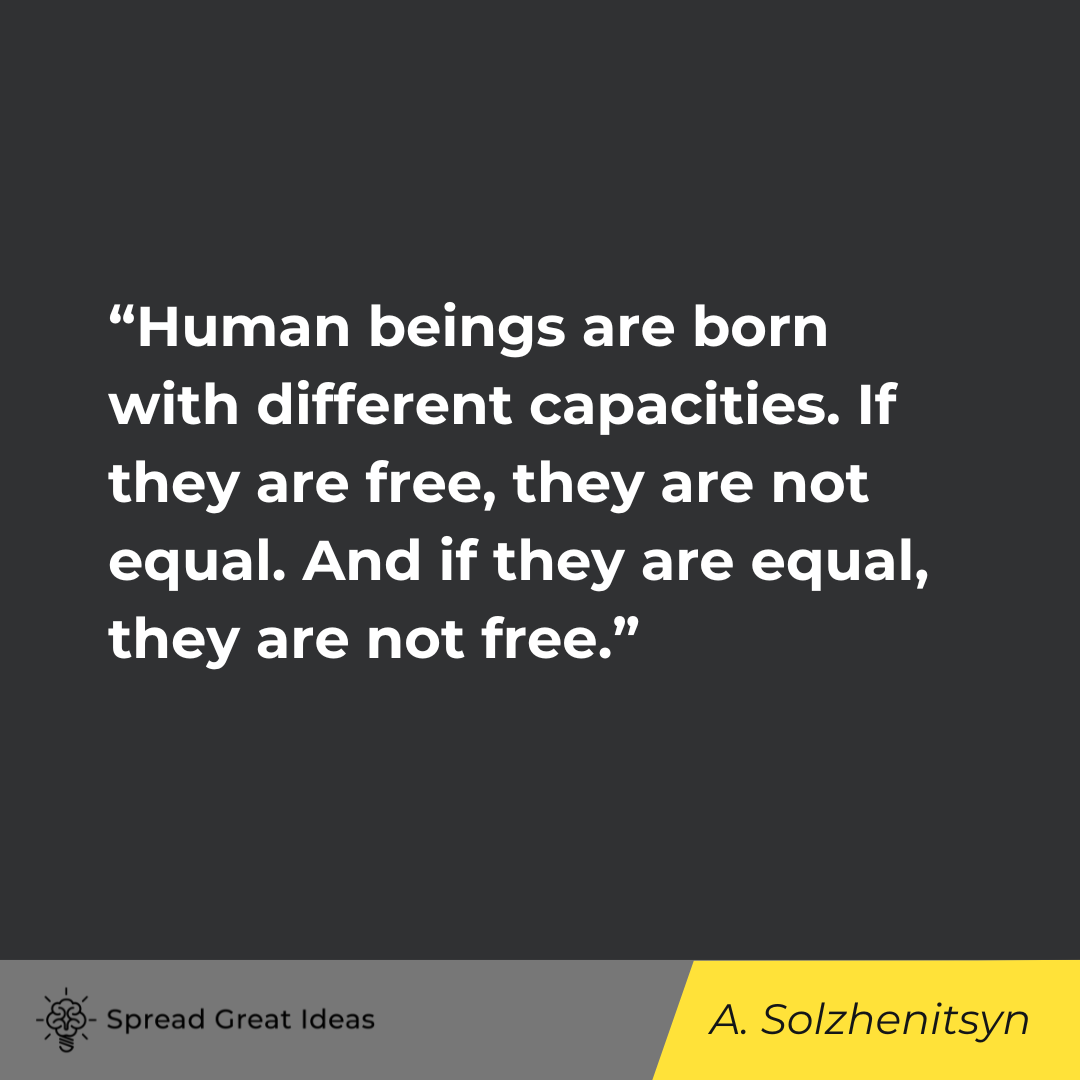
“Human beings are born with different capacities. If they are free, they are not equal. And if they are equal, they are not free.”
– Aleksandr Solzhenitsyn on freedom and equality in a free market system.
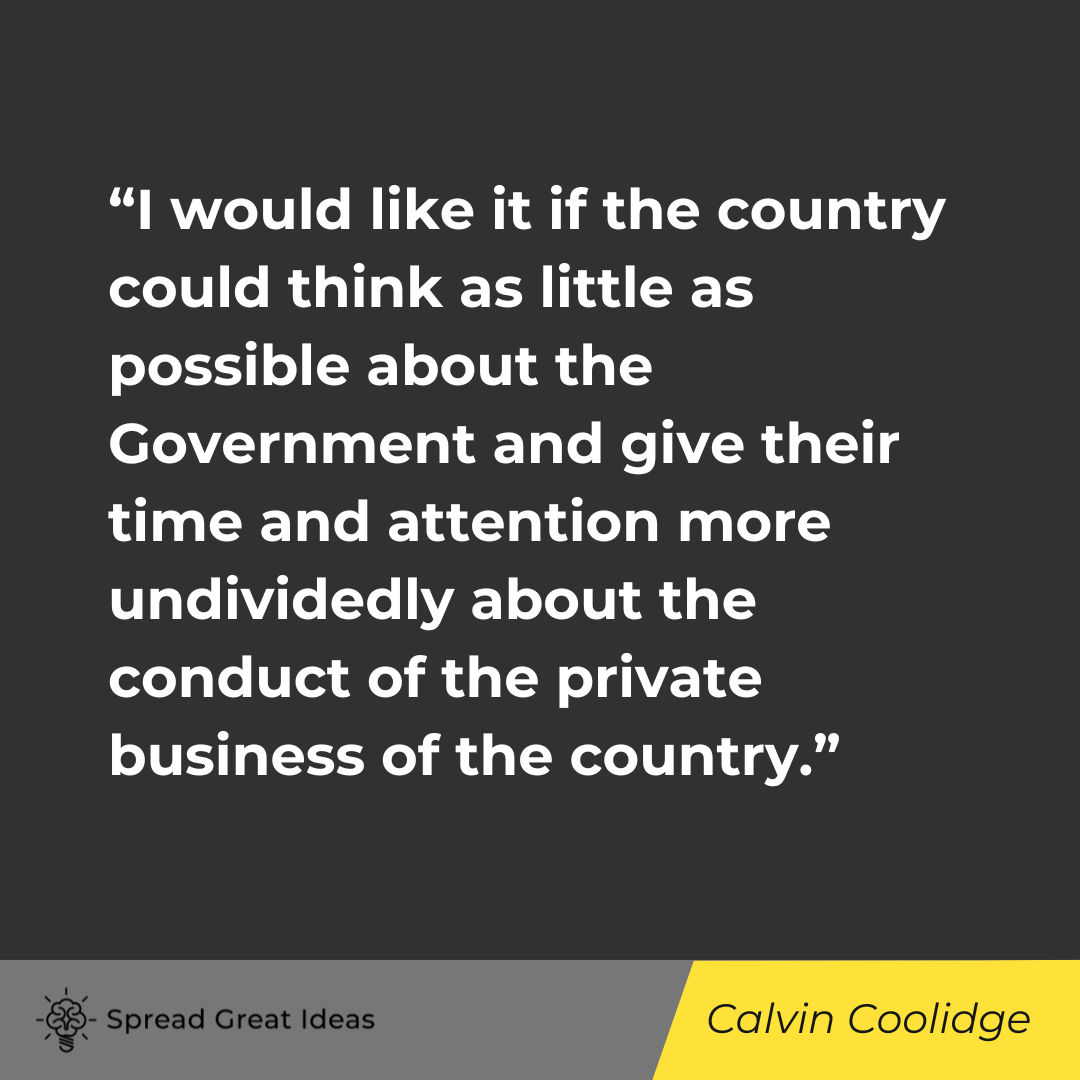
“I would like it if the country could think as little as possible about the Government and give their time and attention more undividedly about the conduct of the private business of the country.”
– Calvin Coolidge, The Talkative President on the importance of focusing on private enterprise.
The Free Market is Where Grit Meets Greatness
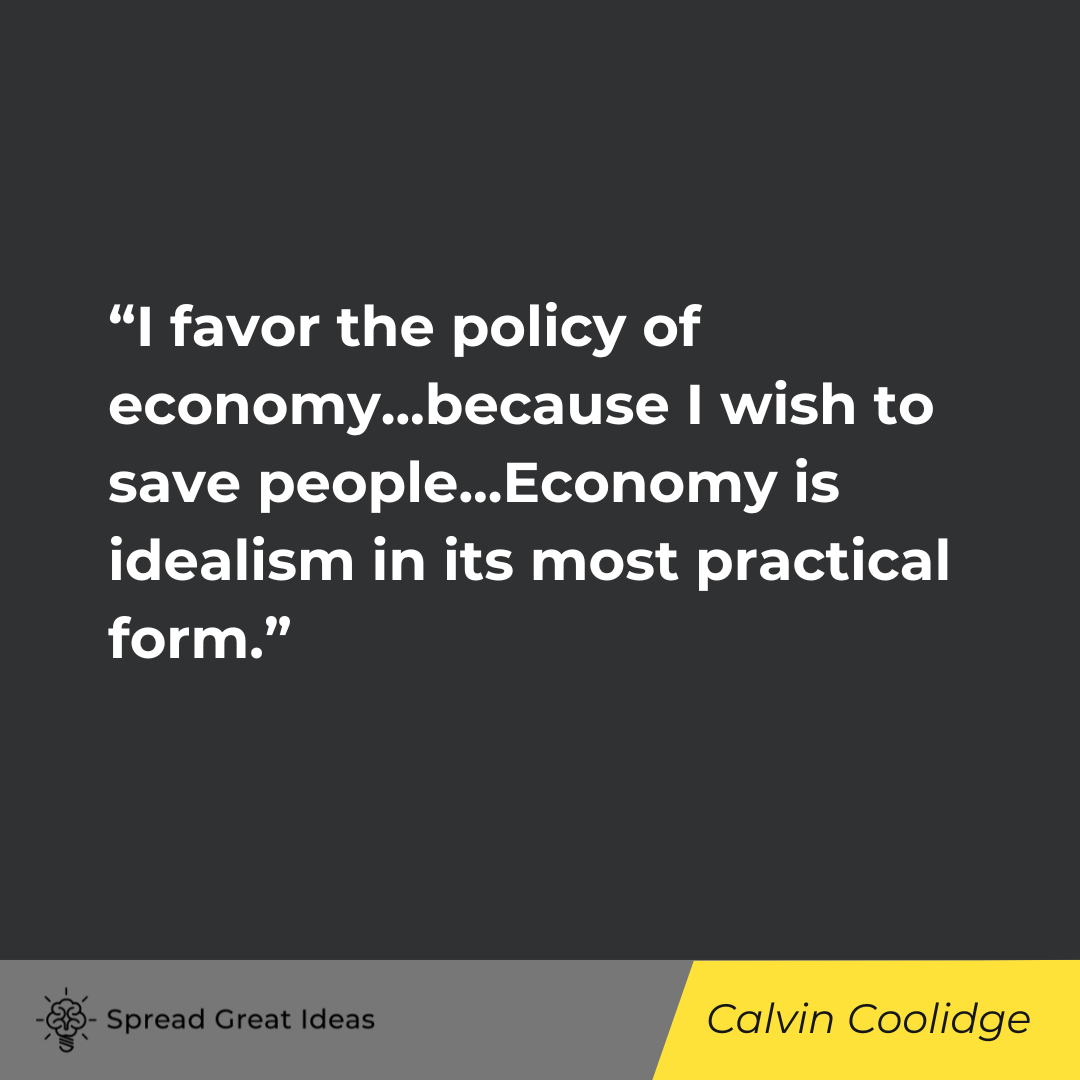
“I favor the policy of economy…because I wish to save people…Economy is idealism in its most practical form.”
– Calvin Coolidge, Inaugural Address, March 4, 1925, on the value of the economy and how it can help society.
Freedom, Individualism, and Anarchy: Great Lysander Spooner Quotes
Why care about Lysander Spooner quotes? Because Spooner challenged the most powerful force in the United States – and won. In the 1840s the United States Post Office charged nearly…